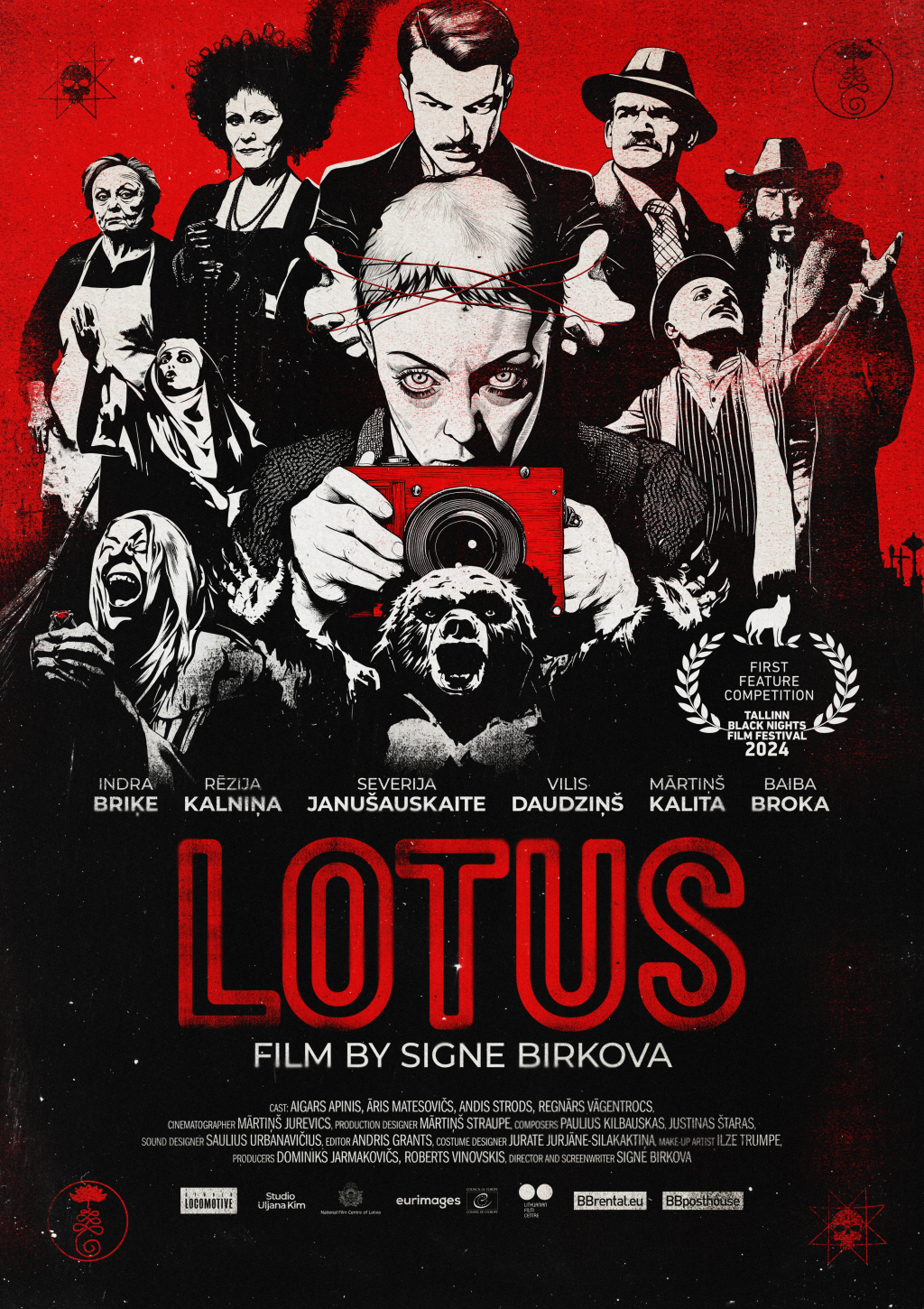Lotus tells the story of Baltic German Alice von Trotta, who returns to her late father’s manor in Latvia in 1919, intending to sell it and start a new life. What begins as a straightforward journey soon reveals hidden dangers: Alice encounters hostility from local laborers and finds herself ensnared in a trap carefully orchestrated by the demonic lawyer Emil Keyserling, the decadent underground organization Viva la Mort, and its necrophile leader Sieba Falstaff. They aim to manipulate Alice, a well-educated woman from France who has also endured severe trauma, resulting in an amputated leg. Keyserling and Sieba see Alice’s intelligence and artistic talent as tools to manipulate, intending to seize control of the country through art—specifically, silent movies. Amid her efforts to escape this corrupt circle, Alice finds allies in Latvian cinema enthusiasts working on a silent film about ancient Latvians. Inspired by their dedication, she begins experimenting with film editing and creates her own unique work. In the process, Alice’s journey of self-discovery transforms into a confrontation with her enemies, leading to the accidental creation of an avant-garde masterpiece that pioneers a new cinematic approach.
Signe Birkova è un'affermata regista di cortometraggi, film sperimentali e documentari, nonché di performance cinematografiche analogiche. Nei suoi lavori sperimentali, Birkova utilizza spesso pellicole 16mm e Super 8, combinandole con diverse tecniche di animazione. Ha ricevuto il premio FIPRESCI al National Film Festival per il suo cortometraggio Upon Return I'll Be a Flaming Rose / Un tad es atgriezīšos kā kvēlojoša roze (2014, Camera Obscura). Il suo documentario Ring of Fire / Uguns aplis (2021, VFS Films) è stato presentato in anteprima al Riga International Film Festival nel 2021 e ha partecipato al programma Future Promises al Karlovy Vary International Film Festival nel 2019.
